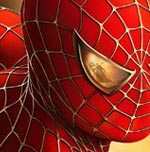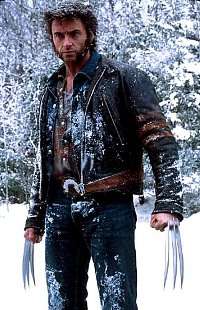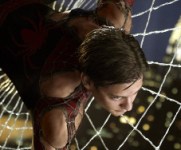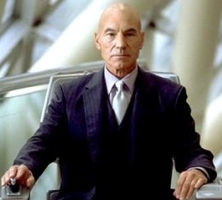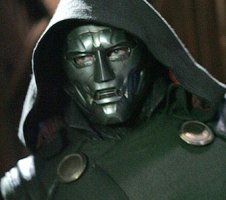|
|
|
Evolution of Perspectives on Spider-Man's Genetic Mutation
"With great power comes great responsibility"- Spider-Man
|
Spider-Man
Spider-Man is a unique superhero because his genetic mutation greatly influences his adolescence as he struggles to keep a hidden identity, use his powers for good, and still live an “ordinary” life. Peter Parker is an average, nerdy, hard working high school student who is isolated from his classmates because of his shyness and intellect. Parker hardly receives recognition from people nor has a high self-esteem. However, the intervention of science turns this average teenager into a mutant with extraordinary powers. His character is easy to identify with because despite his role as a superhero, he still shows very human qualities because he deals with the problems of everyday life: “Spider-Man is the quintessential Marvel character…he is spared none of the slings and arrows of ordinary life; difficulties with friends, family, sweethearts, and employers. His powers enable him to do good, but not to improve his own lot in life, and it is his simple humanity, rather than his exotic talent, that has won him millions of enthusiastic fans” (Biography 1).
The movie Spider-Man begins with Parker introducing his primary obsession and next-door neighbor: Mary Jane Watson. “MJ…acts as a catalyst for the many revolutions in the character of Peter/Spider-Man” because she is central for Parker’s motivation to both give up as well as continue possessing his superpowers (Peaslee 1). Parker becomes a mutant on a class field trip to Columbia University, where he is accidentally bitten by a “genetically engineered, super-spider” (Peaslee 7). The spider-bite alters Parkers genes, giving him powers that he has always dreamed of. He develops a muscular, fit body, perfect vision, increased strength and agility, “spider senses,” which is the heightened ability to sense danger, the ability to crawl up walls, and, his favorite, the ability to shoot webs from his wrists and swing from building to building.
Parker’s first discovery of his genetic mutation is nothing short of a miracle for Parker. He feels alive for the first time, joyously chanting as he swings through New York City. He is finally able to defend himself from a high school bully, and he gets Mary Jane’s attention for the first time by catching her when she almost falls. Parker celebrates his altered genes by using his powers for selfish reasons. He uses his new genetics as a way to fit in and use to his advantage because “the satisfaction we find in possessing the persona of a superhero can be described in any number of forms. Our narcissism may be satisfied through feelings of power, independence, or physical beauty” (Peaslee 3). At the same time, he begins to neglect the concern of his Uncle Ben and Aunt May because he is so caught up in himself. |
The most significant transition in Peter’s life in Spider-Man occurs with the death of his Uncle Ben, his sole father figure. Because of Peter’s greed to use his powers to win a car, and his need for revenge towards the men who did not give him his prize money, cause him to let a burglar to escape. This burglar ends up killing Uncle Ben. Peter learns that his abuse of his powers led to the death of his uncle, and his “driving force is guilt, not revenge” (Biography 1). He realizes that self-absorption cannot be the sole use of his mutation. He begins to see his change in genetics as a special privilege, and he adopts the new alter-ego of Spider-Man. So in a sense, “the initial enjoyment of super powers in a character like Spider-Man/Parker gives way to a kind of despondence born of isolation and misunderstanding” (Peaslee 5). In other words, Parker realizes that his genetic mutation is something that can be used for a purpose, and he should use his powers to fight evil even if it means disconnecting himself and sacrificing the jobs from his previous life. He even sacrifices having as relationship with MJ, which is something he desires more than anything. His acceptance of his new role in society makes him a controversial character because his friends and community have mixed feelings towards a seemingly omnipotent hero. Parker adopts the ideology that his Uncle Ben told him shortly before his death: “With great power comes great responsibility” (Peaslee 1). This quote is the tagline and main challenge that Peter has to adjust to with being a mutant. Whether his spider bite was a freak accident or fate, Parker takes on a dual identity: one as the average, shy,
|
|
passive high school graduate and the other as the tough, heroic spectacle of New York City.Although Spiderman is considered a hero by some people, particularly the people he saves, he is portrayed as a menace by the media. Spiderman contains interesting commentary on how the media, motivated by money, seeks to print the most eye-catching news rather than the truth.The media significantly aided to Parker’s isolation from society because it made people were uncomfortable with his mutant powers. At the same time, people relied on him to be saved, so Parker is forced to rely on his personal motivation for justice and desire to save the ones he loves, like MJ and Aunt May, to give him satisfaction and credit for his mutation. The public masses are too fickle in their attitude towards a mutant being loose and uncontrolled in city full of non-mutants. |
Spider-Man 2: Continued Isolation and Sacrifice because of mutation
Spider-Man 2 provides further commentary on how Peter Parker’s genetic mutation is forcing him to be a hero for those in need, but he has to give up the opportunity to live life the way he pleases. The film begins with Parker having difficulties at work, school, and communication with his friends, family, and MJ. Sick, stressed, and depressed, Parker is slowly realizing that he is a slave to all of the responsibilities that come with being a mutant. His powers, which he saw as a blessing for most of the first Spiderman film, becomes a curse. Parker grows apathetic towards battling evil in NYC if no one is giving him the appreciation he deserves: “Peter has always been torn between his sense of duty and the mixed feelings he has received from the public. This reception has varied from praise to outright condemnation, and it has left the teenager confused about his role” (Biography 4). The film also shows how extraordinary powers do not free a person from disappointment or questioning his identity.
Parker goes through a significant turning point when he realizes all that he is missing from catering to his alter ego, Spiderman, all the time instead of taking care of himself. He disappoints MJ by never going to one of her plays, he can’t pay the rent, he’s failing his favorite subject in college, and his best friend, Harry Obsborn, hates him because he photographs Spider-Man for a living. Parker realizes that his mutation, although it is a part of his genetic makeup, is something he can choose to use or ignore. He decides to deny his genetic mutations, give up the Spider-Man suit, and get his life back together. In a sense, he is denying a part of himself (Spiderman) in order to make up for all of the times he has denied the other half of his identity (Parker).
Parker learns a valuable lesson when he takes a break from being Spider-Man. This transition is unlike the first film where Parker uses his powers to do things he has always wanted to do; in this film, giving up his powers liberates him. The film shows Parker living his life they way he wants, but he neglects to help anyone from harm because he thinks that is not his role anymore. There is a scene in Spider-Man 2 where he walks right past a man being mugged and assaulted by two other men. Even though just one man is a lot easier to save than a train full of people, Parker still neglects serving justice because he feels that ordinary people cannot be heroes. That scene represents how Parker falsely views his mutation as the only means to fight evil. Aunt May is significant in changing Peter’s perspective about his mutation. She shows him that having superpowers, or advanced genetics does not make a person a hero. Rather, the inner desire for justice and drive to help humanity is what makes a hero, which is something any person can have: “I believe there's a hero in all of us, that keeps us honest, gives us strength, makes us noble, and finally allows us to die with pride, even though sometimes we have to be steady, and give up the thing we want the most. Even our dreams…” (Spider-Man).
Parker is inspired to embrace his dual Spider-Man identity and accept the sacrifices he has to make in order to be humanity’s servant and hero. He realizes it is worth his effort to use his mutations to fight evil, even if he is misunderstood. At the end of the film, Parker’s identity is revealed to MJ, and he finally finds happiness and peace because she chooses to love him and be with him. Parker continues fighting crime because he “[hopes] that some day the world will learn to appreciate Spider-Man” (Biography 4). |
Important Quotations from Spider-Man Films:
|
Aunt May:
"Too few characters out there, flying around like that, saving old girls like me. And Lord knows, kids like Henry need a hero. Courageous, self-sacrificing people. Setting examples for all of us. Everybody loves a hero. People line up for them, cheer them, scream their names. And years later, they'll tell how they stood in the rain for hours just to get a glimpse of the one who taught them how to hold on a second longer. I believe there's a hero in all of us, that keeps us honest, gives us strength, makes us noble, and finally allows us to die with pride, even though sometimes we have to be steady, and give up the thing we want the most. Even our dreams…" |
Peter Parker: " Not everyone is meant to make a difference. But for me, the choice to lead an ordinary life is no longer an option."
Peter Parker: "Whatever life holds in store for me, I will never forget these words: "With great power comes great responsibility." This is my gift, my curse. Who am I? I'm Spiderman."
Green Goblin: "No matter what you do for them, eventually, they will hate you."
|
| |
|
| Quotes from “Spiderman Quotes" by Simran Khurana, About, Inc. http://quotations.about.com/od/moviequotes/a/spiderman.htm |
|
